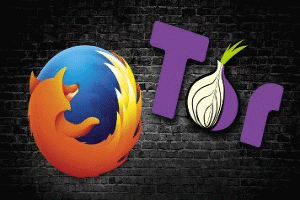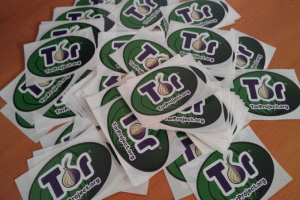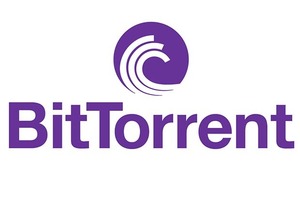81% of Tor users can be de-anonymised by analysing router information
 Research suggests that more than 81% of Tor clients can be ‘de-anonymised’ their originating IP addresses revealed – by exploiting the technology that is built into its router protocols, and similar traffic analysis software running by default in the hardware of other manufacturers.
Research suggests that more than 81% of Tor clients can be ‘de-anonymised’ their originating IP addresses revealed – by exploiting the technology that is built into its router protocols, and similar traffic analysis software running by default in the hardware of other manufacturers.
The technique involves introducing disturbances in the highly-regulated environs of Onion Router protocols using a modified public Tor server running on Linux. His work on large-scale traffic analysis attacks in the Tor environment has convinced that a well-resourced organisation could achieve an extremely high capacity to de-anonymise Tor traffic.
Read moreNew Mozilla privacy initiative to include high-capacity Tor relays
 Mozilla is starting a new initiative that the company says is designed to incorporate more privacy enhancing features into Firefox and the other Mozilla products. The project involves collaboration and will involve Mozilla running a group of high-speed Tor relays, as well.
Mozilla is starting a new initiative that the company says is designed to incorporate more privacy enhancing features into Firefox and the other Mozilla products. The project involves collaboration and will involve Mozilla running a group of high-speed Tor relays, as well.
Privacy has become a major issue for users across the spectrum, not just the security conscious or paranoid. Nowadays, consumers are seeking out privacy enhancing tools and shunning those that infringe on their expectations of online privacy. Especially the NSA revelations of the last 18 months also have helped make privacy a key concern for enterprises and their customers.
Read moreEuropol and the FBI have conducted a successful raid on Dark Web
 When operation first came to light, it looked like a targeted strike against a few high value targets in the Dark Web drug trade. Now the full scope of that international law enforcement crackdown has been revealed, and it’s a scorched-earth purge of the Internet underground.
When operation first came to light, it looked like a targeted strike against a few high value targets in the Dark Web drug trade. Now the full scope of that international law enforcement crackdown has been revealed, and it’s a scorched-earth purge of the Internet underground.
The European police agency Europol along with the FBI and the Department of Homeland Security announced that the operation has now arrested people in as many countries and seized hundreds of Dark Web domains associated with well over a dozen black market websites. Just how law enforcement agents were able to locate the Dark Web sites despite their use of the Tor anonymity software remains a looming mystery.
Read moreHidden services of Facebook
 Today Facebook unveiled its hidden service that lets users access their website more safely. Users and journalists have been asking for our response; here are some points to help you understand our thinking.
Today Facebook unveiled its hidden service that lets users access their website more safely. Users and journalists have been asking for our response; here are some points to help you understand our thinking.
I didn't even realize I should include this section, until I heard from a journalist today who hoped to get a quote from me about why Tor users wouldn't ever use Facebook. Putting aside the (still very important) questions of Facebook's privacy habits, their harmful real-name policies, and whether you should or shouldn't tell them anything about you, the key point here is that anonymity isn't just about hiding from your destination.
Read moreA malicious Tor exit node was found in Russia
 Tor exit node in Russia spotted downloading malicious code. Users of the Tor network now have one more reason to be cautious when using the service to browse the Internet or to download executable code anonymously.
Tor exit node in Russia spotted downloading malicious code. Users of the Tor network now have one more reason to be cautious when using the service to browse the Internet or to download executable code anonymously.
A security researcher uncovered a malicious Tor exit node in Russia being used by unknown attackers to insert malicious code into files being downloaded by Tor users. Tor administrators have since flagged the node as a BadExit, meaning that Tor clients now know to avoid using the server. Tor is a network that allows users to browse the web anonymously. It uses a series of encrypted connections to route data packets in such a manner as to hide the true IP address of the person using the service.
Read moreBTindex exposes IP-Addresses of BitTorrent users
 The newly launched torrent search engine BTindex crawls BitTorrent's DHT network for new files. It's a handy service, but one that comes with a controversial twist. In addition to listing hundreds of thousands of magnet links, it also exposes the IP-addresses of BitTorrent users to the rest of the world.
The newly launched torrent search engine BTindex crawls BitTorrent's DHT network for new files. It's a handy service, but one that comes with a controversial twist. In addition to listing hundreds of thousands of magnet links, it also exposes the IP-addresses of BitTorrent users to the rest of the world.
Unless BitTorrent users are taking steps to hide their identities through the use of a VPN, proxy, or seedbox, their downloading habits are available for almost anyone to snoop on. By design the BitTorrent protocol shares the location of any user in the swarm. After all, without knowing where to send the data nothing can be shared to begin with.
Read moreLittle anonymous or who finances Tor?
 For a long time many people use Tor for information security. The Department of State expenses were increased in 2,5 times, and the government of the USA invests more than 47% money in the Tor network now.
For a long time many people use Tor for information security. The Department of State expenses were increased in 2,5 times, and the government of the USA invests more than 47% money in the Tor network now.
The Tor Corporation has published the financial report for 2013 that on the Tor project which gives users the chance to remain anonymous, more 47% budgetary funds of the USA were spent. In 2012 Tor Project received from the government $1,24 million, and in 2013 – $1,82 million, from them $882,3 were allocated by the Department of State, the Ministry of Defence of the USA donated $830,3 thousand, the National Science Foundation handed over $100,3 thousand and $10 were given by the Agency for International Development (USAID).
Read moreTor anonymity service says its network was hacked
 The Tor encryption service is a high-profile bastion of computer security, but the project appears to have been compromised earlier this year.
The Tor encryption service is a high-profile bastion of computer security, but the project appears to have been compromised earlier this year.
Today, the Tor Project blog announced that an unknown party likely managed to gather information about people who were looking up hidden services — websites that users can operate and visit anonymously, like Silk Road — and could theoretically have compromised other parts of the network. Anyone who used Tor between early February and July 4th of 2014 "should assume they were affected" by the attack, says the Tor team. But they don't know what exactly that means.
Read moreRussia reward bonuses looking to crack the encryption network solutions anonymous
 Russia is to crack the Tor anonymity network out of high reward. According to British media reports, offering a reward of 3.9 million Russian rubles (about 680,000 yuan), hoping to find crack Tor anonymity network called the program.
Russia is to crack the Tor anonymity network out of high reward. According to British media reports, offering a reward of 3.9 million Russian rubles (about 680,000 yuan), hoping to find crack Tor anonymity network called the program.
The anonymous network hides the user's location and identity, let them through computers on the network to upload a lot of data, and the program is encrypted. Russia's Interior Ministry made this reward decision and said it was to 'ensure the country's defense and security.' This award rule only applies to the Russian people; the program submission deadline is August 13. Applicants need to pay 19.5 million rubles (about 34,000 yuan), to participate in competitions.
Read moreHackers can identify Tor users with 3000 USD
 According to experts, with the help of shortcomings in design and implementation of the Tor network users can be identified.
According to experts, with the help of shortcomings in design and implementation of the Tor network users can be identified.
At the Black Hat conference in 2014 information security experts Alexander Volynkin and Michael McCord will show that not only NSA can recognize anonymous Tor network users and watch them. Experts say that Tor users‘ identification doesn’t require large financial investments, the project costs just $ 3,000. The research, called “You don’t have to be the NSA to break tor: Deanonymizing users on a budget“ was published in briefing on Black Hat website. With the help of shortcomings in design and implementation of the Tor network users can be identified, experts say.
Read moreAxarhöfði 14,
110 Reykjavik, Iceland















